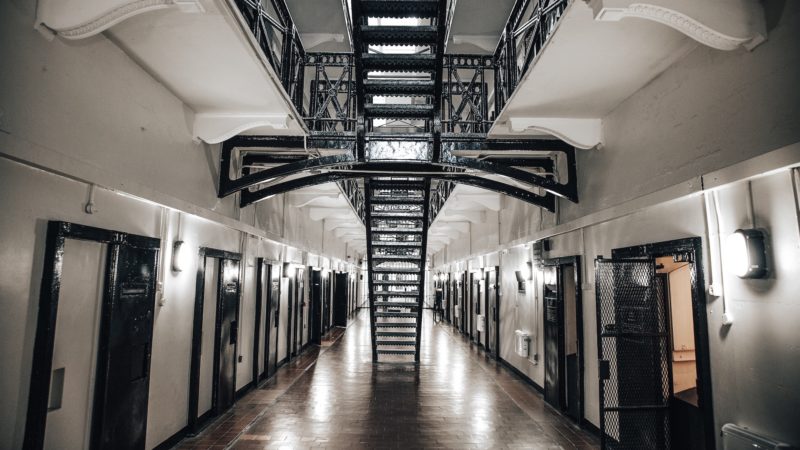
Trigger warning: this piece discusses suicide.
Today is World Suicide Prevention Day. Since first being affected by suicide as a child, I have been a passionate advocate for better services, more funding, less taboo around this thing that robs us of some of our brightest and best. The causes of suicide are complex, but they should not just be ascribed to the atomised individual attempting to die.
Suicide is not simply a mental health phenomena – it is a societal one, with the levers to reduce it found in strong relationships and communities, and in reducing disadvantage. In socio-economically disadvantaged communities, suicide rates are two to three times higher. These measures have to happen alongside a properly funded mental health system, which has been lamentably underfunded for over a decade. As socialists who understand the interconnected nature of society and the pernicious effects of inequality, suicide prevention and postvention should be a priority.
In the UK, 6,507 people took their own lives in 2018, an increase of almost 11% from the previous year. Suicide is a sudden loss, which can result in complicated grief and life-long consequences for those bereaved by it. Part of the aim of World Suicide Prevention Day is to enable conversations about suicide and demonstrate that recovery is possible – both for those who have attempted suicide and those bereaved by it.
From the early days of working in prison, it was clear to me that loss and death were commonplace. If it wasn’t being openly discussed (usually with extreme flippancy – ‘yeah, my mum did herself in on the day I started school. Weird day to choose, hey?’), it was always just under the surface, lurking, the pain of loss ready to break through and punctuate the drudgery of prison life at any moment. Too often, this then translated into self-harm or a suicide attempt. The rate of suicide in prison for men is five to six times of that in the community; for women, it is 20 times the rate. (In the community, three times more men than women in die by suicide.) There are currently almost two suicides a week in our prisons.
Anneliese Sanderson was an 18 year-old girl with learning difficulties and a history of mental health issues. On the same day she attempted suicide, she was arrested for shoplifting a pair of trainers and assaulting the emergency workers who intervened. She was subsequently found guilty and, despite her history, sentenced for 12 months to the 486-person adult women’s jail, HMP Styal. Six months later, she was found dead. What was Anneliese doing in prison in the first place?
Alongside increased funding for every level of mental health services, not just the acute psychiatric end, Labour must pledge to fully decriminalise mental health provision. Prison should not be deemed a suitable place for profoundly ill people. Tragically, Anneliese’s suicide is one of many examples of people who should not have been in prison and went on to take their own lives there, as just two of myriad examples show.
Lewis Francis, aged 20, was deemed by a prison doctor two months before his death to lack the mental capacity to engage with the criminal justice system. It was noted that there were “serious concerns” as to whether prison was an “appropriate environment” for him. It was recorded soon after he entered the prison by a consultant psychiatrist that he was suffering a psychotic episode. He died nine weeks after entering prison.
Dean Saunders, aged 25, was arrested amid an acute mental health crisis during which he attempted to hurt himself. He was arrested and sent to HMP Chelmsford, where his transfer to a hospital was recommended, but there were no beds available. Although there is a requirement for a no-more-than-14-day window for transfers once a prisoner is assessed as needing one, this is frequently breached due to a paucity of beds and staff. Dean remained in mainstream prison. Despite his family repeatedly raising concerns about him with the prison, Dean was found dead within three weeks.
Our prisons are not fit for purpose. They are unsafe, unsanitary, overcrowded and understaffed, despite the best efforts of many who work in them as officers, healthcare workers and charity workers. Ongoing exposure to suicide takes a high toll on the prison workforce, increasing levels of burnout and, at times, affecting their ability to respond to future suicide attempts.
Prisons should not be places for people in acute mental health crises. HMP Liverpool had a history of high suicides. Under Professor Joe Rafferty, the NHS provider in the prison adopted a zero-suicide approach, which has caused a drastic reduction. Why is the government not urgently replicating this work throughout the estate? Labour’s shadow justice team must include this valuable work in any forthcoming justice policy. Otherwise, we leave unaddressed the worst kind of systemic failure – one with permanent outcomes, devastating families and communities.
You can call Samaritans free on 116 123, email them at [email protected], or visit www.samaritans.org to find your nearest branch.
For help and advice about state-related deaths, you can call INQUEST on 020 7263 1111.




More from LabourList
Antonia Romeo appointed to lead civil service as new Cabinet Secretary
‘If Labour is serious about upskilling Britain, it must mobilise local businesses’
Stella Tsantekidou column: ‘What are we to make of the Labour Together scandal?’